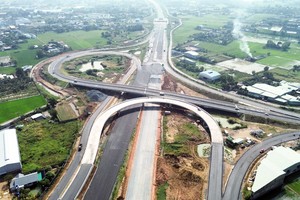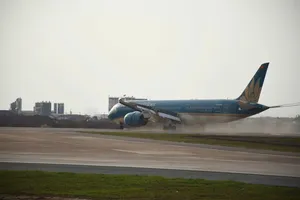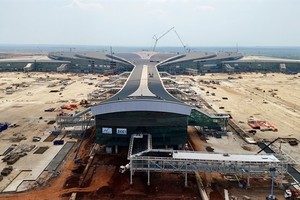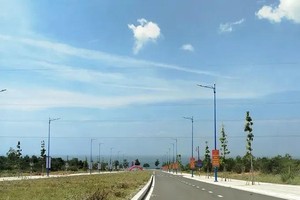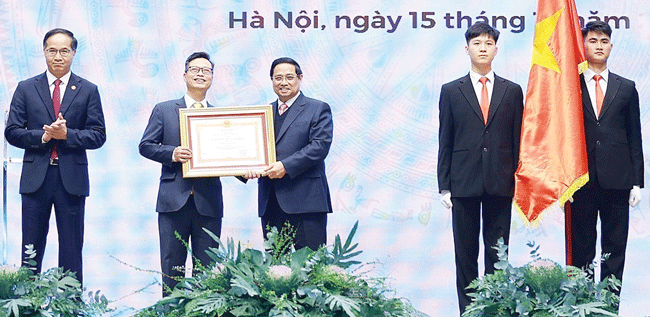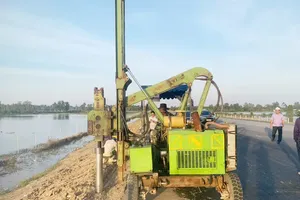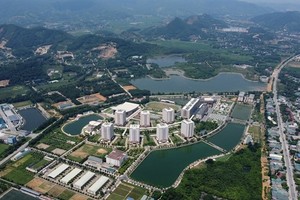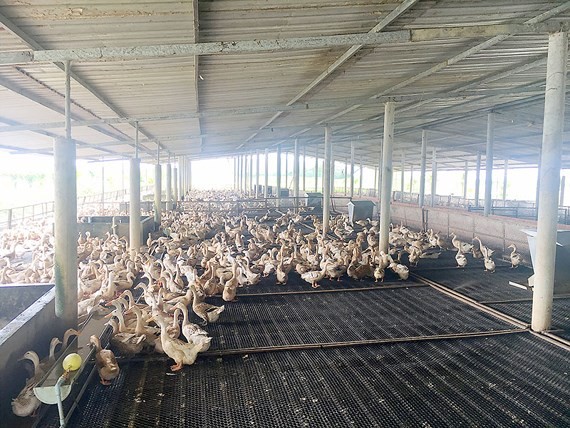
In the meeting named “Developing eider in Mekong delta to adapt to climate change” , experts said that the waterfowls are easily bred in all freshwater, brackish water, salt water and eggs, meat quality is the same with fresh duck in the country.
As per the General Statistics Office (GSO) of Vietnam, total number of duck nationwide is 72 million and 26 millions of duck are bred in the Mekong delta accounting for 37 percent. The number of duck in Tra Vinh Province in Mekong delta dropped from 2.4 million to 1.4 million because of salinity.
According to the Institute for Husbandry, the number of waterfowl would fall in the future because saltwater intrusion continued meanwhile the delta's eight coastal provinces namely Long An, Tien Giang, Ben Tre, Tra Vinh, Soc Trang, Bac Lieu, Kien Giang, and Hau Giang are suitable for farming sea duck.
Some sea ducks had been raised in saltwater intrusion areas in pilot in three years; and the result is quite pleased as the animal was duplicated. Especially, the animal can be bred in brackish water, coastal areas or islets. Sea ducks have also been bred in some drought and salty water-hit areas such as Kien Giang, Tien Giang, and Bac Lieu.
Director of Institute of Animals Sciences for Southern Vietnam under the National Institute of Animals Sciences Duong Xuan Tuyen said that sea ducks, a salt-tolerant animal species, are well-resistant to diseases and adaptable to salty and brackish water environment; accordingly, the center is carrying out sea duck farming in 12 provinces in the Mekong delta in a piloted program.
A sea duck weighs 2.8 kilogram in nine week and they lay 240 eggs a year. However, it needs further studies on the animal to select and duplicate them for breeding in islets and salt water intrusion areas.
The encourage agricultural expansion center in Long An and Soc Trang provinces followed suit to raise the animal for two years realizing that the animal is bred in nature to make full advantage of natural food sources rich in nutrients.
The Department of Agriculture and Rural Development in Hau Giang Province where raises 2.5 million ducks. In 2016, half of its land was intruded by salt water causing loss for duck breeding.
Therefore, the local authority has piloted to breed sea duck in salt intruded communes generating high profit for farmers. Farmer Mai Van Duong in Tra Vinh is feeding 800 sea ducks saying that egg and meat quality is very good but farmers is facing difficulties in consumption because customers are not used to the new animal.
Many encourage agricultural expansion centers said volatile markets of sea duck get farmers down despite good quality of egg and meat. The government should increase information of the animal to make consumers know more about the animal and work out plan to avoid abundant supply.
In fact, Deputy Head of the Department of Husbandry under the Ministry of Agriculture and Rural Development Nguyen Van Trong said , sea duck has been raised in islands and coastal districts a few years ago in pilot. To have high productivity, the Department has provided technique and baby ducks to farmers. Nevertheless, the piloted program faces difficulties in consuming.
Deputy Chief of the National Encourage Agricultural Expansion center Ms. Ha Thuy Hanh said four years ago, the center piloted to raise the animal in coastal communes in the northern province of Quang Ninh and got success. Price of sea duck egg is sold higher than normal duck in the North and the supply fell behind market expectations. Subsequently, it is potential in the Mekong delta.

